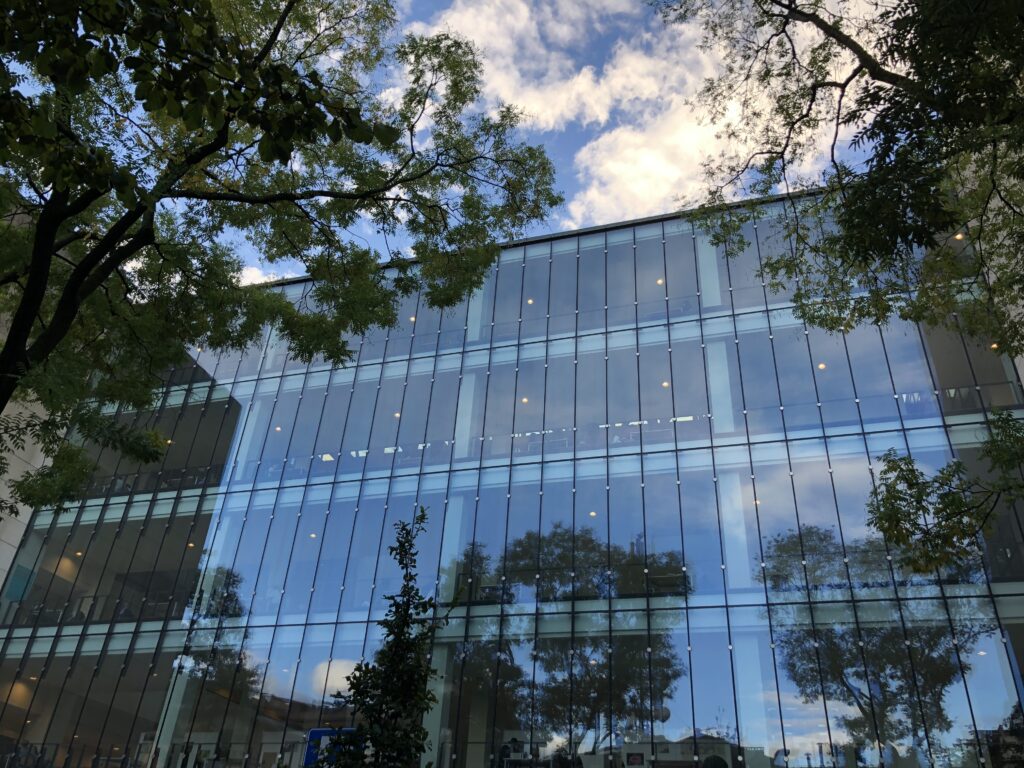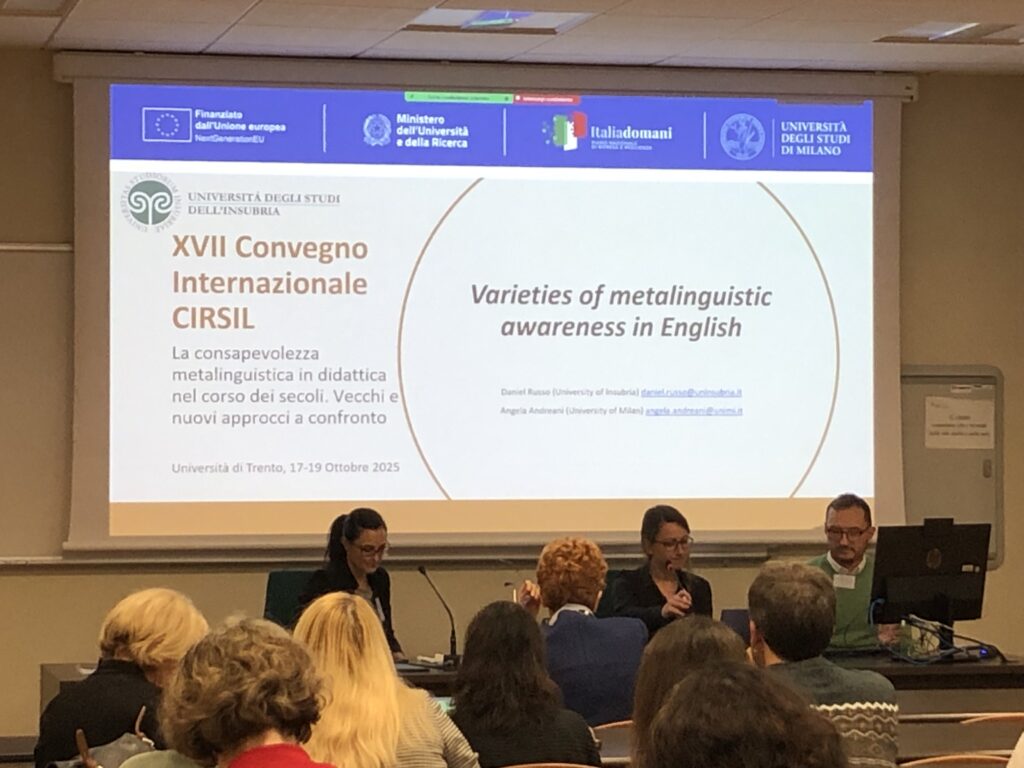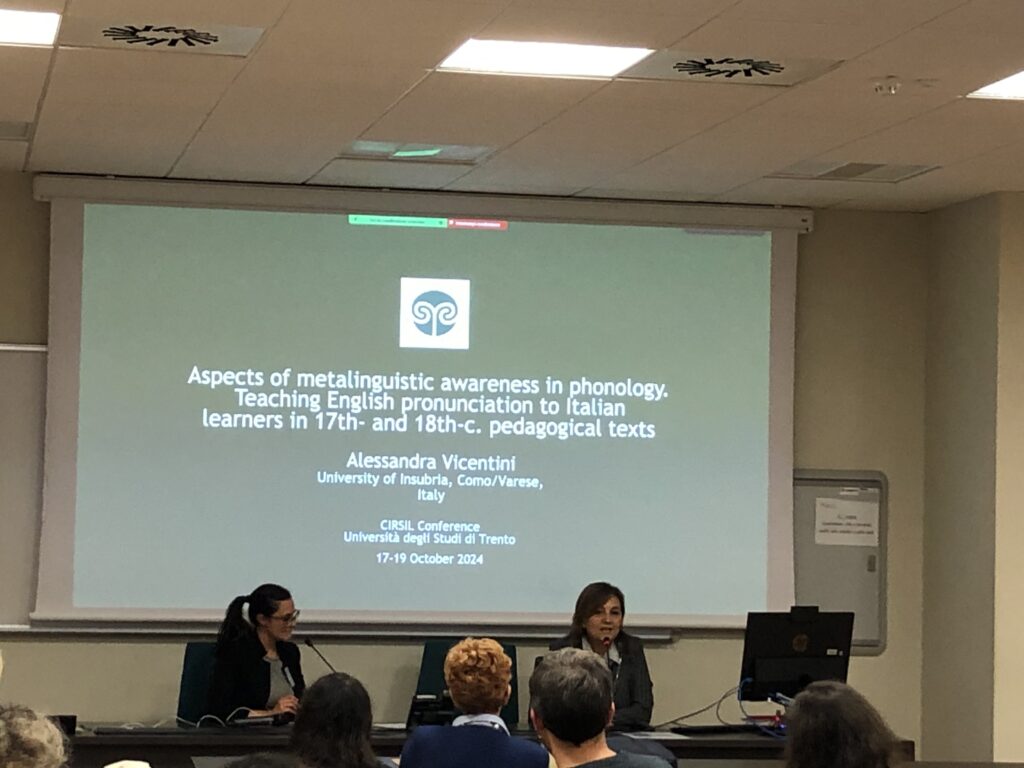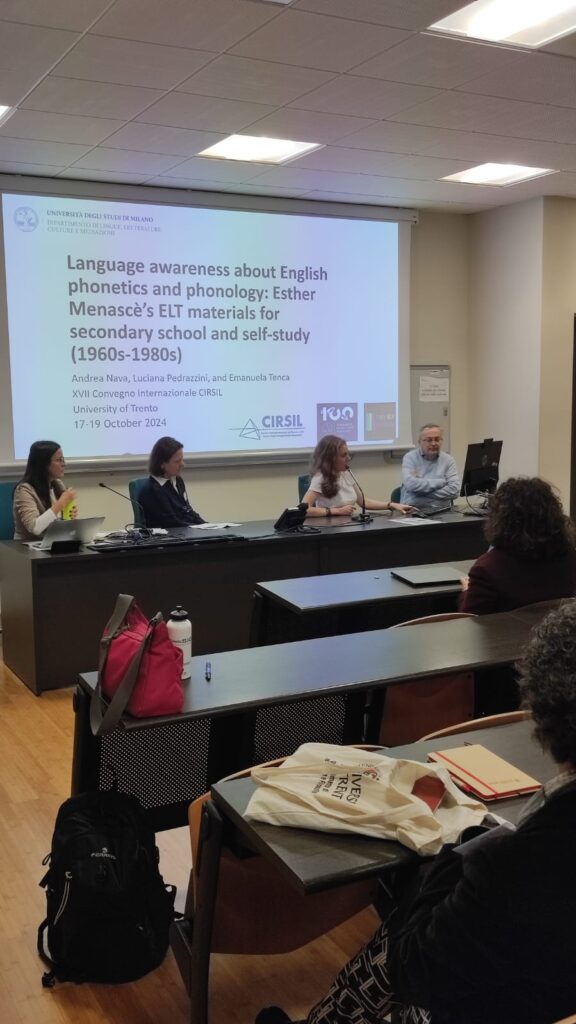This year’s international conference of the Centro Interuniversitario di Ricerca sulla Storia degli Insegnamenti Linguistici (CIRSIL) took place at the University of Trento between 17 and 19 October 2024. The topic of the conference, organised by Professor Federica Ricci Garotti, was metalinguistic awareness. The paper presentations delivered by the international speakers attending the conference focused on the historical development of this fundamental concept for foreign language education, with a view to better understanding current challenges in learning and teaching languages.

While metalinguistic awareness has been studied often in combination with the teaching of grammar, the papers in the conference also took in consideration its role in areas pertaining to vocabulary, pronunciation, and spoken language. The genres analysed in the presentations included grammar books, coursebooks, dictionaries, and conversation books, as well as syllabi and teacher’s guides. The analyses presented regarded a rich a variety of foreign languages, namely Chinese, English, German, Italian, Russian, and Spanish, and they covered different historical periods from the 15th to the 20th century.
Three presentations were delivered during the conference, which were related to the English language from different perspectives. In their talk “Varieties of metalinguistic awareness in English, 1500-1700”, Daniel Russo (University of Insubria) and Angela Andreani (University of Milan) presented the results of a study conducted in the context of the MetaLing Corpus Project. The project, which belongs to the fields of historical linguistics and of corpus linguistics, is centred on the study of the metalanguage used in English texts to describe, compare, and classify European languages between 1500 and 1700, from both a diachronic and synchronic standpoint. In their talk, Russo and Andreani described the corpus and the challenges entailed first in the process of building it, and then in interrogating it, given the high level of orthographic variation across the sources sampled. They also presented a case study related to lexicography, in which they discussed examples of metalanguage in John Florio’s A Worlde of Wordes.

The second presentation regarding the English language was by Alessandra Vicentini (University of Insubria), and it was titled “Aspects of metalinguistic awareness in phonology. Teaching English pronunciation to Italian learners in 17th- and 18th- c. pedagogical texts”. Even though systematic linguistic reflection on pronunciation began only in the 19th century, Vicentini showed how instances of ante litteram phonetics and phonology can be noticed in materials published between the the 17th and 18th century, targeting a range of learners, such as merchants, traders, and later also members of the bourgeoisie. In her qualitative study, Vicentini focused first on the macro-structure of the materials she sampled, including their paratextual elements. Then, she looked at their micro-structure and investigated the strategies adopted by the authors to teach pronunciation and to promote learners’ reflection.

The third talk was given by the members of the Italy ELT Archive, Andrea Nava, Luciana Pedrazzini, and Emanuela Tenca, and it was titled “Language awareness about English phonetics and phonology: Esther Menascè’s ELT materials for secondary school and self-study (1960s-1980s)”. Nava, Pedrazzini, and Tenca presented the case of Esther Menascè (1929-2022), professor of English Language and Literature at the University of Milan from 1983 to 2000. Menascè devoted a large part of her publications to the pursuit of applied research into the teaching of the English language, and her work was grounded both in the scientific description of English (in particular, phonetics and phonology) and in teaching methodologies which were popular in the USA and in the UK, and which were slowly being taken up in the Italian context. In their talk, Nava, Pedrazzini, and Tenca discussed Menascè’s work as an author of ELT materials between the 1960s and 1980s, and they provided insight into how language awareness was enhanced in her publications targeted at secondary school learners and in self-study materials designed for adult learners.

To find out more about Menascè’s work, you can browse the Books catalogue of the Italy ELT Archive, and read her entry in the Authors catalogue.
The annual conference held in Trento was the 17th one organised by CIRSIL, a research centre bringing together scholars from the Universities of Bologna, Genoa, Insubria, Milan “Statale”, Milan “Cattolica”, Modena and Reggio Emilia, Neaples “Federico II”, Palermo, Pisa, Rome “Tre”, Siena, Turin, and Trento. The CIRSIL supports the study of the history of language education in Italy, it promotes information exchanges and cooperation with other bodies and institutions, and it collaborates with other language-nased international associations and research groups such as SIHFLES in France, APHELLE in Portugal, PHG in the Netherlands, SEHL in Spain, and the HoLLT.net research network. Together, they organise a European conference which takes place every two years. The last conference was in 2023 in Faro, Portugal, and the next one will take place in Como, Italy on 5-7 June 2025.
